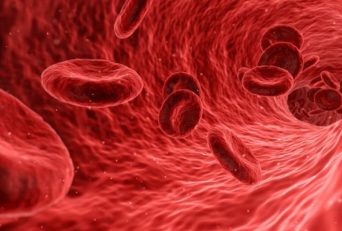Have you ever had a pinched nerve? If so, then you must know that it is very painful. It restricts the movement of the body too. This is a common problem among all ages. You must be curious about what it is, the pain, it’s after effects and the treatment.
Well, it is a phenomenon that occurs when you apply too much pressure on a nerve.
If you have an interest in pinched nerve pain and related queries, you came to the right place. Here, you will get to know everything about pinched nerves; symptoms, pain, treatment, healing etc
Do you have a tingling sensation on your shoulder or back? After some time, you may feel the area numb. This pain you feel may come and go at times. There may be days when you don’t feel it at all. And then there are days when you can’t help but cancel activities that you have planned.
The main cause of the pain may be a pinched nerve. You may ask if you should be having a concern. If so, read on.
First of all, many of you are familiar with body pain and aches. A pinched nerve occurs when your nerve root is under compression as it exits the spinal column. This often causes pain on the spot as well as the areas where the nerve passes. Pain is a warning sign.
Damage from a pinched nerve ranges from minor to severe. It may cause both temporary and long-lasting problems. The earlier you receive a diagnosis and begin treatment, the faster you’ll experience relief.
In some severe cases, it is most likely that you cannot reverse the damage from a pinched nerve. Hence, early diagnosis and treatment is the key to finding relief.
Now, let’s see pinched nerve in details.
Table of Contents
What Is A Pinched Nerve?

You see, a “pinched nerve” is a term given to the uncomfortable sensation or pain, and numbness. It is due to an increase in pressure to a peripheral nerve. Well, Nerves extend from your brain and spinal cord throughout your body.
And a pinched nerve occurs when the nerve that exits from the spinal column gets compressed. It is often associated with back pain or a neck injury, but almost any nerve is susceptible.
A pinched nerve is also known as a slipped disc. A pinched nerve may occur as a result of a sports injury, an accident, a fall in the home or because of the aging process. It can be painful.
The pain ranges from a dull throbbing to a knife-like sharp pain. The pain can also radiate to other areas. When the pain goes down the leg, this is called sciatica.
The common areas where nerves pinch includes the carpal tunnel, the elbow, the upper thigh, the knee, the small of the back, the neck region, and the shoulders.
Besides, it is different from tennis elbow. It is because the pinched nerve is not as a result of inflammation but because of nerve compression. It may not be life threatening but it affects life.
And also, early diagnosis and treatment are essential. So, visit your doctor at the first sign to avoid damage.
Causes Of Pinched Nerve In The Shoulder Blade

As mentioned earlier, pinched nerve occurs due to pressure on nerves. Pressure on a peripheral nerve can irritate the nerve it’s protective covering (myelin sheath), or both.
When this occurs, the nerve is unable to send sensory impulses to the brain, leading to a sense of numbness.
The inflammation associated with an injury can also cause pain or paresthesia (a tingling or prickling sensation) signals to sent to the brain.
In the early stages, you may describe this sensation as a body part that has “fallen asleep.” But, if the pressure continues, the sensation persists rather than resolving after a few minutes.
Nerves are most vulnerable at places where they travel through narrow spaces but only little soft tissue to protect them. Nerve compression occurs when the nerve is pressed between tissues such as:
- Ligament
- Tendon
- Bone
Below I have listed some of the common causes of a pinched nerve–
a. Carpal Tunnel Syndrome
This condition is more frequent in women, is a common cause of pinched nerves. It occurs in the wrist when the nerve is pressured.
b. Heredity
Some people may be genetically predisposed to developing pinched nerves.
c. Posture
Poor posture adds pressure to your spine and nerves.
d. Large Breasts
A poor posture in women with large breasts is a common cause of pinched nerve in the shoulders. Wearing a proper support and maintaining posture may help in such a condition.
e. Obesity
Excessive weight put pressures on the muscles and nerves surrounding the shoulder and thereby increases the risk of a pinched nerve in the shoulder.
f. Bone Spurs
It can stiffen the spine and narrow the space where your nerves travel. Bone spurs develop as a process of aging. As you age, your bones become weak.
The body generates extra structures to support you. But, it may irritate the nerves thus causing a pinched nerve.
g. Overuse
Repetitive hand, wrist or shoulder movements can lead to pinched nerves
h. Pregnancy
The swelling from pregnancy can put extra pressure on nerves and nerve pathways. Thus, pregnant women have a higher risk for developing a pinched nerve in the shoulder.
i. Other Medical Conditions
Conditions like rheumatoid arthritis and osteoarthritis can damage the nerves over time (the spurs of osteoarthritis compress the nerves), resulting in pinched nerves in the shoulders.
Symptoms A Pinched Nerve In The Shoulder

A tingling sensation is the most common symptom of a pinched nerve, and it is very often accompanied by some numbness.
At first, the tingling and numbness may come and go, but over time the sensation becomes more persistent. A sharp jabbing pain may happen too, though some describe it as a burning sensation.
In more severe cases, the pinched nerve could result in muscle weakness as the nerve that controls the muscle has been irritated.
Some of the common symptoms are–
1. Pain
As we know from earlier you will tend to feel pain. The type of pain that you feel will vary. There may be times when the pain seems to be throughout your body but there may also be times when the pain is constant in one area.
2. Numbness
If you start to feel that you cannot feel your body that much anymore, this is may be a sure sign of having a pinched nerve.
The weakness that you might feel may only be felt through your arm but it may travel up to your arms. This can make it harder for you to do your usual tasks.
3. Weakness
You might start to feel that you cannot move your body parts around much anymore. Lifting things may be very hard for you and even trying to lift your arm to the same level as your shoulder can be challenging.
If a pinched nerve that affects a muscle function is not quickly identified and rectified, the muscle may have atrophy and decrease in function and size. Hence, getting medical attention is a must.
How To Diagnosis A Pinched Nerve?
A specialist may be able to help you. He will proceed with the diagnosis of pinched nerve by taking a history of symptoms and performing a careful physical examination.
You should tell him how the pain originates and the scale of the pain, how long it has been, any earlier injuries etc. He may also ask you to have a clinical examination based on his findings.
The clinical tests may consist of x-rays, MRIs and EMG. Well, X-rays may show you the damages in bone but MRIs shows the nerve and muscle damage too.
And, Electromyography (EMG) is a nerve conduction study to help confirm the diagnosis of a pinched nerve and to determine the extent of nerve damage.
If the pinched nerve is in the neck or back, an MRI or CT scan may be used to make the diagnosis and look for the cause (bulging disc, arthritis, or fracture). For pain in the shoulder, an X-ray may be performed to look for signs of arthritis or injuries to the bones.
An MRI or ultrasound (another non-invasive imaging test) can show the soft tissue in the shoulder and can determine whether the pain is being caused by injured ligaments or tendons.
How To Get Rid Of Pinched Nerve In Shoulder?

The treatment of a pinched nerve depends upon the location and the cause. Resting the affected area is often effective. Physical therapy is beneficial when a pinched nerve is caused by problems in the neck or low back.
Exercises may strengthen the back or core muscles and decrease or eliminate pressure on a nerve root.
Here are the treatments used in common–
1. Rest
You must remember that rest is essential. You must rest from time to time. When you rest, the pressure in the nerve releases and hence helps reduce pain.
2. Healthy Diet
A healthy diet is essential for living a healthy life. Make sure you have a balanced diet. A diet that is rich in calcium and potassium.
3. Medications
If the pain is high, your doctor may prescribe anti-inflammatory drugs like ibuprofen. Oral corticosteroids help reduce swelling and pain. If the pain is extreme narcotics may be used.
4. Physical Therapy
Sometimes, physical support using a splint or brace is proven to be helpful. It helps by relaxing the nerve for a brief period of time.
5. Exercise
Exercise strengthens the muscles and supports you more thereby reducing pressure on the nerve. It further helps you lose and maintain weight.
6. Injection
In severe cases, a corticosteroid injection may be prescribed. It is known that it kills the pain. But, it didn’t work then surgery is the last option.
7. Surgery
If you have a severe case of a pinched nerve and you experience a lot of pain, you may also choose to undergo surgery. This is usually your last option so you can expect to try out a variety of other treatments before your doctor approves it.
Surgery is done to release pressure on the nerve if it fails to respond to medication, splinting, physical therapy, or injections. It removes the material that is pressing on the nerve.
The type of surgery depends upon the nerve. Still, the goal of the surgery is the same. It is to eliminate or relieve the pressure on the affected nerve
8. NSAIDs.
Nonsteroidal calming drugs (NSAIDs, for example, headache medicine, ibuprofen, or naproxen may lessen swelling.
9. Oral Corticosteroids.
These are utilized to diminish swelling and agony.
10. Opiates.
These are utilized for brief periods to diminish extreme torment.
11. Steroid Infusions.
These infusions may decrease swelling and permit aroused nerves to recuperate.
12. Physical Therapy
This will help extend and reinforce muscles.
13. Prop
A prop or delicate neckline limits movement and permits muscles to rest for brief periods.
Here, you must know that nerves can regenerate (regrow) very slowly over time. It is important to seek evaluation for symptoms which persist or recur over some days or weeks. This helps in prevention of further damages.
Exercises To Heal Pinched Nerve In The Back
One of the best ways to relieve the pain is through simple exercises. Exercises help strengthen the damaged area. Not only do they relieve pain and help heal the damaged nerve, but prevents the injury from recurring.
There are a few simple but effective exercises you can do to get relief. However, it might be a good idea to take the advice of a physical therapist.
It is to see which exercise would be most appropriate for you. Remember that overexerting a particular muscle or nerve could make things worse than they already are.
1. Back Exercises For Pinched Nerves
i. Side Bends
Start in a standing position with your hands on your hips. Maintain a straight posture. Gently stretch your lower back by leaning to both sides of the body. Do five side bends towards each side of your body.
ii. Twist
Start in a sitting position while placing the legs at shoulder width. Place your left hand on your right knee and pull your body forward to gently stretch your back muscles. Hold the position for five seconds then repeat on the other side.
iii. Hamstring Stretch
Start in a sitting position. Lean forward and attempt to touch your toes. You may feel a gentle stretch in your hamstrings. Hold for ten seconds then sit up straight. Repeat five times.
2. Shoulder Exercise For Pinched Nerves
i. Chin Extension
Sit on a chair and cross the fingers on both hands. Place them behind your head. Move your chin in a downward direction and to the right side simultaneously.
Hold for 15 seconds, before looking forward again. Repeat on your left side. Perform five times in each direction.
ii. Shoulder Shrugs
Perform in a standing position. Keeping both arms at your sides, shrug your shoulders backward in a rotating motion.
Return to the original position by rotating from the opposite direction. Perform a set of 15. Take a break between each set.
iii. Bench Press With Broom
Perform this exercise while lying down. Lie on your back while holding a broom across your body with both hands at shoulder width. Press the broom pressed upwards until your elbows become straight. Repeat 15 times with 30-second breaks between each set.
3. Other Pinched Nerve Exercises
i. Aerobic Exercise
Aerobic exercise like walking, cycling, and swimming reduces the pain and discomfort associated with a pinched nerve. It does so by increasing your blood circulation and delivering oxygen and nutrients to the damaged nerve, which facilitates healing.
ii. Pilates
It is excellent for balancing muscle development, building a strong core, and reinforcing good posture. The low impact is a perfect choice to relieve pain and minimize the risk of re-injury.
iii. Yoga
Yoga combines classic poses, breathing, and deep relaxation to condition and strengthens your body regardless of your current flexibility or other physical limitations.
iv. Water Exercises
Simply moving in water helps loosen and limber up your body while offering it support you wouldn’t normally get on dry land.
4. Muscle Balance Therapy
All these exercises can help relieve pain from a pinched nerve. If you want to prevent recurrence you must address the leading cause of all back pain, and much of the pain elsewhere in your body. That is the muscle imbalances.
Muscle balance therapy is a systematic approach to identifying the specific muscle imbalances behind your pain. It then gives you targeted exercises to strengthen your weak muscles and stretches to loosen up those tight, overworked muscles.
Home Remedies To Cure Pinched Nerve
Some of the home remedies for pinched nerve are listed below.
1. Rest
Rest is the one thing we can easily do at home. If you ever experience pain, try relaxing your nerves by resting or maybe sleeping an extra hour. Try to lay down on a hard surface as flat as you can.
2. Hot Compress
Sometimes an increase in blood circulation can relax a muscle. Thus, applying a hot compress for at least 15 minutes helps.
3. Alternate Hot And Cold Compress
when you apply a hot pad for 15 minutes and then change it ice pad for another 15 minutes on the pain area, it works. The pain in the area alleviates.
It is because the alternation of hot and cold compress loosens the pinched nerve. It also relaxes the muscles preventing reoccurrence.
4. Braces And Splints
Using splints and braces support the area where you have the pinched nerve. It helps you in relaxing the nerve as well as providing support. Be careful not to become dependent on it.
5. Cinnamon And Honey
Alleviating shoulder torment with normal family unit things like cinnamon and nectar can be useful. Joined together, they contain fixings that can diminish the torment.
You can make a glue by taking 1 measure of nectar and including cinnamon until the nectar thickens into a glue. After the glue is finished, apply it to the shoulder for 10 minutes.
This is an incredible approach to help the agony, yet the cinnamon can consume the skin or leave the region red so make sure to test it on a little bit of your skin first.
6. Fundamental Oils
As per Kurt Schnaubelt, creator of “Restorative Aromatherapy: Healing with Essential Oils,” fundamental oils, for example, marjoram, peppermint, sandalwood, chamomile, and lavender can help assuage nerve torment.
Rubbing or kneading one, or even a mix, of these mending oils onto your shoulder can help decrease the agony that the squeezed nerve is bringing on.
Warm olive oil with a couple drops of any of the previously mentioned oils can help ease the indications while giving a warm feeling to the region.
How To Prevent Pinched Nerve?
Well, you know that prevention is better than cure. If you don’t have the condition and do not plan on having the condition, what you can do is to help prevent it. Here are some things that you can do:
a. Exercise Correctly
There are people who assume that any type of exercise is great. But when you exercise incorrectly, you are not only risking your muscles. You also risk your nerves and also the bones in the process.
b. Maintain A Healthy Diet
One of the main reasons why you have a pinched nerve is because you are overweight. If you maintain a healthy diet, it can help you maintain the weight that you should have. At the same time, you will avoid placing toxins in your body.
c. Acupuncture
You don’t have to have a pinched nerve before you try acupuncture.
It is a popular method. It can serve as one alternate treatment against other problems that you might experience. But remember that acupuncture is known to help in keeping the balance of your whole body.
d. Proper Posture
Another reason why you may have a pinched nerve is because of your posture. Make sure that you keep your back straight and try not to stoop because this leads to a variety of complications.
e. Physical Therapy
There are times when you might have to undergo physical therapy to ease the pain that you feel. Ensure that you keep your sessions so that you will keep your body in good condition.
f. Sleep
Sleep is essential. You should have a proper amount of sleep to rejuvenate your body. It releases stress and you get to have a bright day on the next day.
It is a must for you to take care of your body. A pinched nerve may seem simple at first but it can be severe too. If symptoms persist or pain is severe, you must see your doctor. You may need treatment to shrink the swollen tissue around the nerve.
In severe cases, it may be necessary to remove the material that’s pressing on the nerve. It may be a scar tissue, disc material or pieces of bone.
Yet, it is advisable to get treated by a specialist in case the pain starts. Having proper knowledge, taking precaution and healthy lifestyle is the best key.





